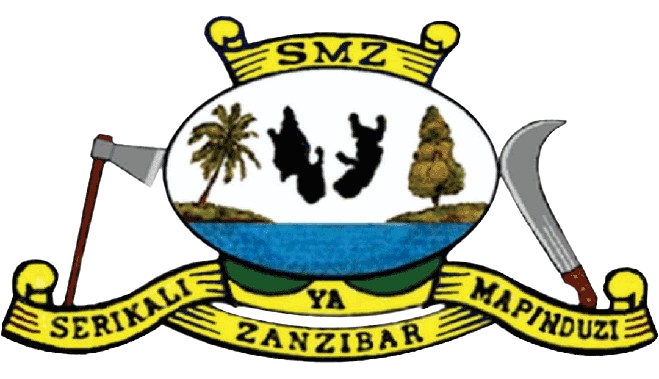The State University Of Zanzibar
Publications
-
High-resolution hydrodynamics of coral reefs and tracing of pollutants from hotel areas along the west coast of Unguja Island, Zanzibar.” 2023. Marine Pollution Bulletin 191: 114968. DOI: https://doi.org/10.1016/j.marpolbul.2023.114968
-
Weight-length relationships, Condition factor and Hepatosomaticindex of goby fish Acentrogobius nebulosus and Asterropteryx semipunctata in coastal ecosystems of Zanzibar. (2021). DOI: http://ijeais.org/wp-content/uploads/2022/2/abs/IJAMR220225.html
-
Drone-based characterization of seagrass habitats in the tropical waters of Zanzibar. (2022.) Remote Sensing, 14(3), 680. DOI: https://doi.org/10.3390/rs14030680
-
Seasonal rainfall affects occurrence of organohalogen contaminants in tropical marine fishes and prawns from Zanzibar, Tanzania Science of the Total Environment 774 (2021) 145652. DOI: https://doi.org/10.1016/j.scitotenv.2021.145652
-
Personalisation of Moodle Learning Management System for Effective Teaching and Learning in Higher Learning Institutions: A Case of the State University of Zanzibar. 2023. African Journal of Science, Technology, Innovation and Development. 15. 1-14. DOI: http://doi.org/10.1080/20421338.2023.2213597
-
Adoption of mobile application for enhancing learning in higher education: Students’ views from the State University of Zanzibar, Tanzania. 2024. African Journal of Science, Technology, Innovation and Development, 16(2), 265–273. DOI: https://doi.org/10.1080/20421338.2023.2289248
-
Organochlorine pesticides and polycyclic aromatic hydrocarbons in marine sediments and polychaete worms from the west coast of Unguja island, Tanzania (2020). Regional Studies in Marine Science 36 (2020) 101287. DOI : https://doi.org/10.1016/j.rsma.2020.101287
-
Assessment of the core and support functions of the integrated disease surveillance and response system in Zanzibar, Tanzania. BMC Public Health 21, 748 (2021). DOI: https://doi.org/10.1186/s12889-021-10758-0ion s
-
Epidemic risk of arboviral diseases: Determining the habitats, spatial-temporal distribution, and abundance of immature Aedes aegypti in the Urban and Rural areas of Zanzibar, Tanzania. 2020. PLoS NTD. DOI: https://journals.plos.org/plosntds/article?id=10.1371/journal.pntd.0008949
-
A Transformation into Digitally Supported Education: Case from the State University of Zanzibar. In: Tatnall, A., Mavengere, N. (eds) Sustainable ICT, Education and Learning. SUZA. 2019. IFIP Advances in Information and Communication Technology, vol 564. Springer, Cham. DOI: https://doi.org/10.1007/978-3-030-28764-1_3
-
Awareness of Open Education Resources (OER) in Higher Learning Institutions. In: Tatnall, A., Mavengere, N. Sustainable ICT, Education and Learning. SUZA. 2019. IFIP Advances in Information and Communication Technology, vol 564. Springer, Cham. DOI: https://doi.org/10.1007/978-3-030-28764-1_25
-
Micro-plastics along the coast of Zanzibar (2019), research report presented to Mwambao Coastal Community Network. DOI: https://www.mwambao.or.tz/wp-content/uploads/2019/02/Microplastics-in-Zanzibar_Report-2019.pdf
-
Habitat Characteristics For Immature Stages of Aedes Aegypti in Zanzibar City, Tanzania. 2018. Journal of the American Mosquito Control Association, 34(3):190–200, DOI: https://doi.org/10.2987/17-6709.1
-
Emerging epidemics: is the Zanzibar healthcare system ready to detect and respond to mosquito-borne viral diseases? 2021. BMC Health Services Research. 21:866. DOI: https://doi.org/10.1186/s12913-021-06867-6
-
High DDT resistance without apparent association to kdr and Glutathione-S- transferase (GST) gene mutations in Aedes aegypti population at hotel compounds in Zanzibar. 2022. PLoS Negl Trop Dis 16(5): e0010355. DOI: https://doi.org/10.1371/journal.pntd.0010355
-
A protocol for evaluating the entomological impact of larval source reduction on mosquito vectors at hotel compounds in Zanzibar. 2023 . PLoS ONE 18(11): e0294773. DOI: https://doi.org/10.1371/journal. pone.0294773
-
Risk factors for occurrence and abundance of Aedes aegypti and Aedes bromeliae at hotel compounds in Zanzibar. 2021. Parasites Vectors 14:544. DOI: https://doi.org/10.1186/s13071-021-05005-9
-
Targeted elimination of species-rich larval habitats can rapidly collapse arbovirus vector mosquito populations at hotel compounds in Zanzibar. 2021. Medical and Veterinary Entomology. DOI: http://doi.org/10.1111/mve.12525
-
Status and long-term changes of coral reefs around Zanzibar. Frontiers in Marine Science (2024). 11, 1334235. DOI: https://doi.org/10.3389/fmars.2024.1334235

